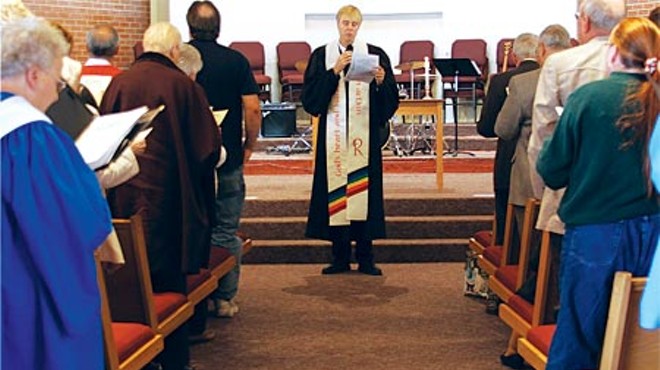Faygeleh, a Yiddish word, literally translates to "little bird." Since the period immediately before World War II, however, it's mostly been used as a slang term for a gay person.
But what does a word like that really mean? And how can we get people to look past it—and every other label, title and superficial aspect of a person that other people seem to use for judgment?
This month, some self-dubbed faygelehs of Tucson are posing that question to the whole city with the Fabulous Faygeleh LGBT Film Festival, a series of screenings—with discussions—of movies exploring what it means to identify as gay, Jewish, black and/or any other kind of minority.
This is the festival's second year as an event in itself, distinct from (but also part of) the larger Tucson International Jewish Film Festival, which has always included at least one LGBT-themed film. Bob Polinsky, the co-chair of the Jewish Film Festival—along with his fellow co-chair and partner, Bob Nichol—came up with the idea when they were trying to pick one LGBT film to screen, and just couldn't, because there were so many fine films coming out of Israel. A whole series of LGBT films, they decided, was necessary.
This year's Fabulous Faygeleh festival will include more films than last year. It will also be the first year that the films will be screened at anywhere other than the Tucson Jewish Community Center—as part of an effort to reach a wider audience.
"We're striving to make this a film festival that's for everybody," declared Polinsky. "The films deal with universal themes, so we're encouraging non-gay as well as non-Jewish people to come."
Polinsky says it's all part of the principle of "public Judaism," or moving the core principles of Judaism into public places. The folks behind the festival want the whole community to "recognize the importance of the issues the films present and how they're part of Jewish ethics—accepting and loving people for who they are, as opposed to a perception of who they are based on a title or quality."
And just what are the films? Polinsky's favorite for this year is Eyes Wide Open, an Israeli film that follows two Orthodox Jewish men—a married father of four and a homeless student—who fall in love. It deals with the issues of faith, love and recognition of one's own sexuality in an orthodox setting.
Another film Polinsky loves is Off and Running, a coming-of-age story about a young black woman adopted by white Jewish lesbians—who are trying to understand her African-American roots and learn who she is.
"These films are about the struggles people go through with discovery and nonacceptance, when all they really want to do is have families and be happy and be considered normal," says Polinsky. "And I think when people see it up on the big screen, people can relate to it. Film is a very powerful medium to make that happen, and that's what we're hoping for."
Brooke Sebold, a New York City documentary and narrative filmmaker, will moderate discussions throughout the festival.




